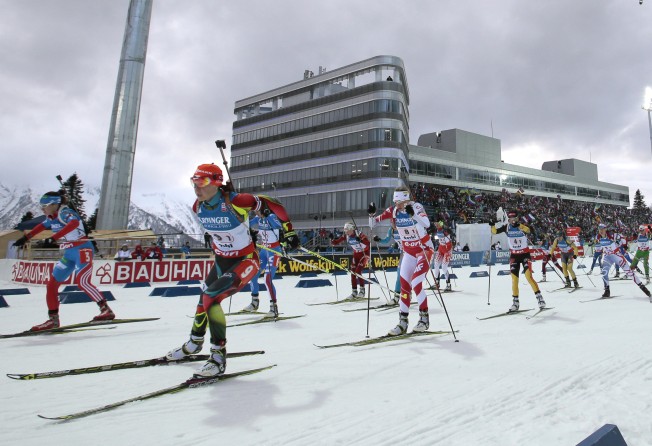Olympics: Russia claims anti-doping progress, must convince sceptics

Russia, for years after the fall of the Soviet Union notorious as one of the world’s worst sports doping offenders, claims to have finally made progress in the fight against drugs and but now must convince sceptics when it hosts the Olympics.
Russian officials are acutely aware that a single positive doping test by a Russian athlete at the Games, which which open on February 7, would cast a shadow over the entire event and further tarnish the country’s reputation.
Critics point to the fact that several-high profile dope cheats are still being uncovered every year in Russia but sports officials in the country say that this is evidence that a revamped anti-doping system is finally working.
A huge shadow fell over Russia’s anti-doping campaign this week when it was announced that the glamour star of Russian swimming, Olympic bronze medallist Yulia Efimova, had been handed a provisional suspension after she tested positive for a banned drug in an out-of-competition doping control test.
Russian halfpipe and slopestyle champion Anna Orlovskaya, a Sochi contender, has been suspended for two years for a positive test and will miss the Games.
When the Russian squad lined up for the 2010 Vancouver Winter Olympic Games, where it won only three gold medals in its worst ever performance, its numbers had been severely depleted by positive dope tests.
At least 10 had been disqualified in the build-up to the Vancouver games for doping, including the triple Olympic cross country ski champion Yuliya Chepalova and 2006 Olympic cross country pursuit champion Evgeny Dementyev.
The problem was so serious that the International Ski Federation (FIS) forced Russia to remove several trainers and medical personnel.
Patrick Schamasch, in 2008 the medical and scientific director of the International Olympic Committee, had declared then that Russia was a country “where no control is possible and where the lives of testers is even in danger.”
Anti-doping agency created
But already in 2008, a year after Russia was awarded the right to host the Winter Olympics in Sochi, the authorities created the country’s first anti-doping agency Rusada to fight against an increasing blight on sport.
“The Russian authorities understood the warning signal that was sounded by the Olympic Committee,” said Schamasch.
Since then Russia has taken important measures in the fight against doping, allowing the free movement of samples in and out of Russia as well as testers.
No fewer than 600 people will be employed to carry out doping tests while over 50 people will work in a brand-new laboratory in Sochi itself specially built for the purpose, the executive director of Rusada, Nikita Kamayev said.
Rusada has since 2009 imposed doping sanctions against 200 Russian athletes, who have mostly been suspended for a career-busting 10 years, although some have been disqualified for life.
Schamasch said he believed that anti-doping controls would be carried out “perfectly” in Sochi, adding that Russia had already shown its capabilities with its work at the world athletics championships in Moscow this August.
The Russian authorities have “understood well the problem of doping” and absolutely do not want Russia to be in the firing line over alleged cheating at top events, he added.
Financed almost exclusively by the state, Rusada puts its emphasis on prevention and educating sportsmen and women, Kamayev said.
“The most important thing is to change the attitude of athletes towards doping, to explain the dangers to them and the possible sanctions and the risks that they are taking,” he said.
The task is particularly acute for young sportspeople in the provinces because training structures and their financing have been very badly thought out, Kamayev added.
“The trainers and heads of teams of youths expect results at regional level very quickly and they are receiving money and compensation at that level.”
“They are not so interested in getting to Olympic level as there is the great risk of anti-doping tests,” he explained. But at regional level in Russia, “the controls are almost non-existent due to a lack of staff.”
Russia currently has 23 full-time testers in Moscow and some 50 for the rest of the country’s regions.